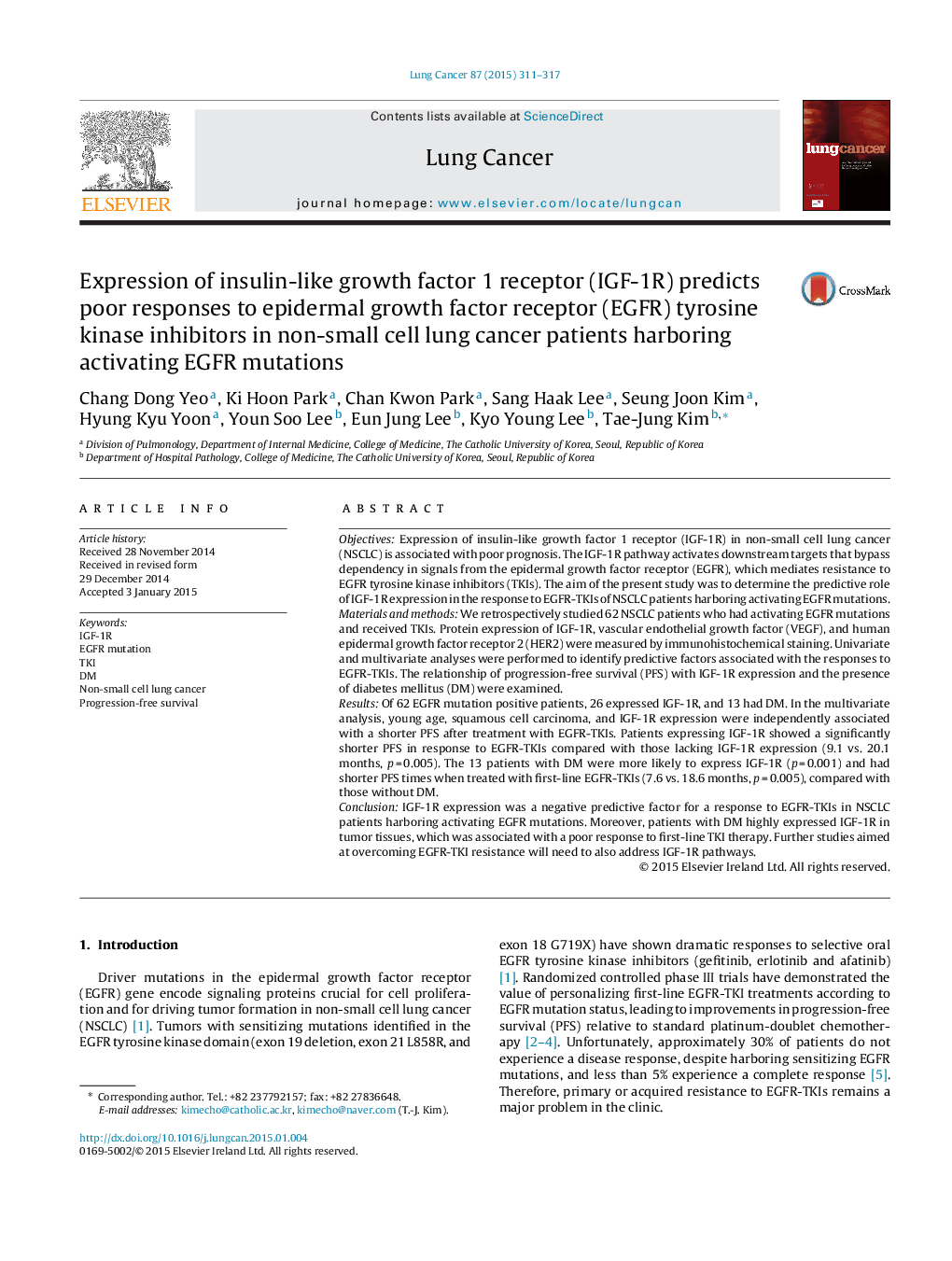| کد مقاله | کد نشریه | سال انتشار | مقاله انگلیسی | نسخه تمام متن |
|---|---|---|---|---|
| 2140750 | 1088255 | 2015 | 7 صفحه PDF | دانلود رایگان |

• We determined the relationship IGF-1R expression and the response to EGFR-TKIs in patients harboring activating EGFR mutations.
• Expression of IGF-1R was independently associated with shorter PFS in a response to EGFR-TKIs.
• Patients with DM highly expressed IGF-1R in tumor tissues.
• DM was associated with a poor response to first-line TKI therapy.
ObjectivesExpression of insulin-like growth factor 1 receptor (IGF-1R) in non-small cell lung cancer (NSCLC) is associated with poor prognosis. The IGF-1R pathway activates downstream targets that bypass dependency in signals from the epidermal growth factor receptor (EGFR), which mediates resistance to EGFR tyrosine kinase inhibitors (TKIs). The aim of the present study was to determine the predictive role of IGF-1R expression in the response to EGFR-TKIs of NSCLC patients harboring activating EGFR mutations.Materials and methodsWe retrospectively studied 62 NSCLC patients who had activating EGFR mutations and received TKIs. Protein expression of IGF-1R, vascular endothelial growth factor (VEGF), and human epidermal growth factor receptor 2 (HER2) were measured by immunohistochemical staining. Univariate and multivariate analyses were performed to identify predictive factors associated with the responses to EGFR-TKIs. The relationship of progression-free survival (PFS) with IGF-1R expression and the presence of diabetes mellitus (DM) were examined.ResultsOf 62 EGFR mutation positive patients, 26 expressed IGF-1R, and 13 had DM. In the multivariate analysis, young age, squamous cell carcinoma, and IGF-1R expression were independently associated with a shorter PFS after treatment with EGFR-TKIs. Patients expressing IGF-1R showed a significantly shorter PFS in response to EGFR-TKIs compared with those lacking IGF-1R expression (9.1 vs. 20.1 months, p = 0.005). The 13 patients with DM were more likely to express IGF-1R (p = 0.001) and had shorter PFS times when treated with first-line EGFR-TKIs (7.6 vs. 18.6 months, p = 0.005), compared with those without DM.ConclusionIGF-1R expression was a negative predictive factor for a response to EGFR-TKIs in NSCLC patients harboring activating EGFR mutations. Moreover, patients with DM highly expressed IGF-1R in tumor tissues, which was associated with a poor response to first-line TKI therapy. Further studies aimed at overcoming EGFR-TKI resistance will need to also address IGF-1R pathways.
Journal: Lung Cancer - Volume 87, Issue 3, March 2015, Pages 311–317